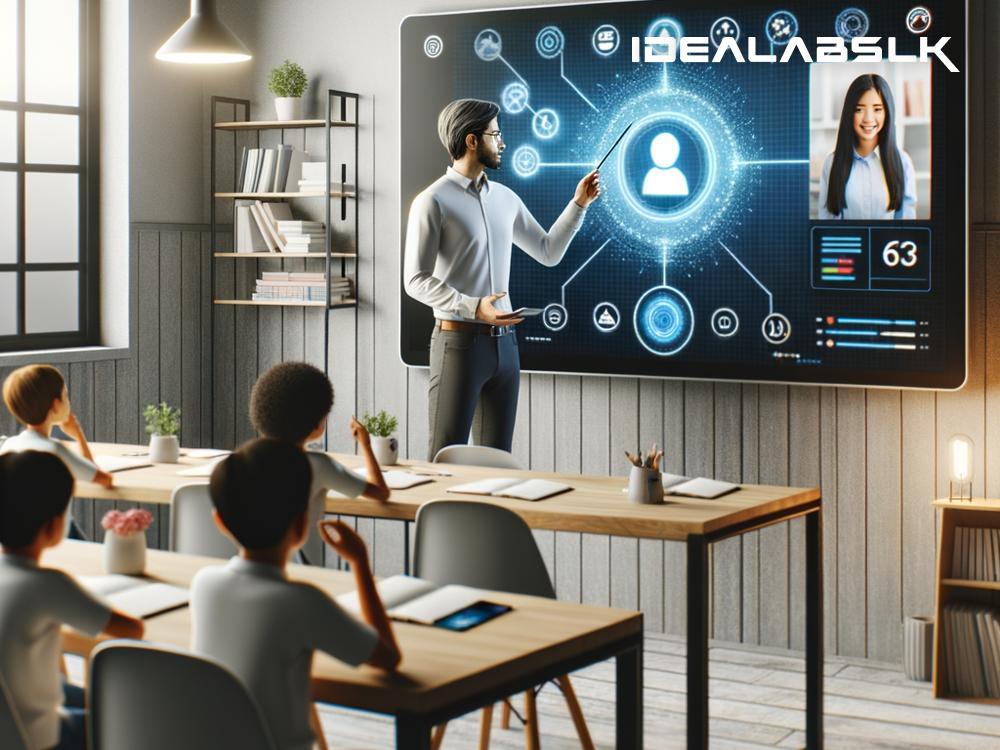AI and Smart Whiteboards: The Dynamic Duo Transforming Remote Learning
In an age where technology continually reshapes how we approach education, Artificial Intelligence (AI) and smart whiteboards are emerging as prime drivers for transforming remote learning. Together, they're not just changing the game; they're creating a whole new playing field. But what exactly makes this combination so powerful, especially in the realm of remote learning? Let's dive in and explore the world of AI in smart whiteboards and how they're enhancing the remote learning experience.
A New Era of Learning
Remember the traditional blackboards covered in chalk dust that filled classrooms once upon a time? Those slowly evolved into whiteboards, then into interactive whiteboards, and now, we have smart whiteboards powered by AI. This evolution marks a significant leap in how we approach education, especially in a time when remote learning has become more prevalent than ever before.
The Role of AI in Smart Whiteboards
AI, or Artificial Intelligence, is like having a super smart assistant that can think, learn, and make decisions. When this technology is integrated into smart whiteboards, it revolutionizes the teaching and learning process. Here's how:
1. Personalized Learning Experiences
One of the most significant advantages of AI in smart whiteboards is the ability to offer personalized learning experiences. AI can analyze a student's learning habits, strengths, weaknesses, and preferences. This data allows the smart whiteboard to customize teaching materials and pace accordingly, making learning more efficient and enjoyable for each student.
2. Interactive and Engaging Sessions
Gone are the days of passive learning where students sit and listen to a teacher talk for hours. Smart whiteboards make learning interactive and fun. With AI, these boards can create engaging quizzes, games, and simulations relevant to the lesson, keeping students motivated and engaged, even from a distance.
3. Real-Time Assistance and Feedback
Imagine having a teacher available 24/7 to answer your questions. That's what AI in smart whiteboards can offer. Students can receive real-time assistance and feedback on their work, helping them to understand concepts better and correct mistakes immediately. This immediate response is crucial in keeping students on track, especially in a remote learning setup where the teacher isn't physically present to oversee their progress.
4. Accessibility and Inclusivity
AI-powered smart whiteboards can make learning more accessible and inclusive. They can cater to students with different needs by adjusting the content's presentation—be it through text-to-speech for visually impaired students or offering interactive, tactile experiences for kinesthetic learners. This inclusivity ensures that every student has an equal opportunity to learn, irrespective of their physical or learning abilities.
Enhancing Remote Learning
The integration of AI in smart whiteboards is proving to be a boon for remote learning. With schools and institutions forced to transition to online classes, these technologies are ensuring that the quality of education remains high. Here are a few ways AI-enhanced smart whiteboards are making a difference:
- Instant Resource Availability: Teachers can pull up information or resources from the internet in real-time during lessons, making learning more dynamic and resource-rich.
- Collaboration Made Easy: These boards facilitate collaboration among students, enabling them to work on projects or solve problems together, even when miles apart.
- Continuous Learning: The AI in these boards helps in creating a repository of lessons and resources that students can access anytime, allowing learning to continue outside of scheduled class hours.
Conclusion
As we sail through the 21st century, the fusion of AI and smart whiteboards is setting a new standard for remote learning. It's not just about making education more accessible; it's about making it more effective, engaging, and tailored to individual needs. With these technologies, we're not just overcoming the challenges posed by the need for remote learning; we're turning these challenges into opportunities to re-imagine and enhance the educational experience for students across the globe.
In essence, AI in smart whiteboards is more than just a technological advancement; it's a beacon of hope for a more inclusive, engaging, and personalized future in education. As we continue to navigate the complexities of remote learning, this dynamic duo stands as a testament to human ingenuity and our relentless pursuit of making quality education available to all.

